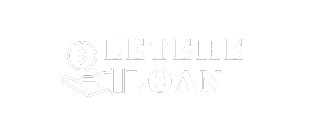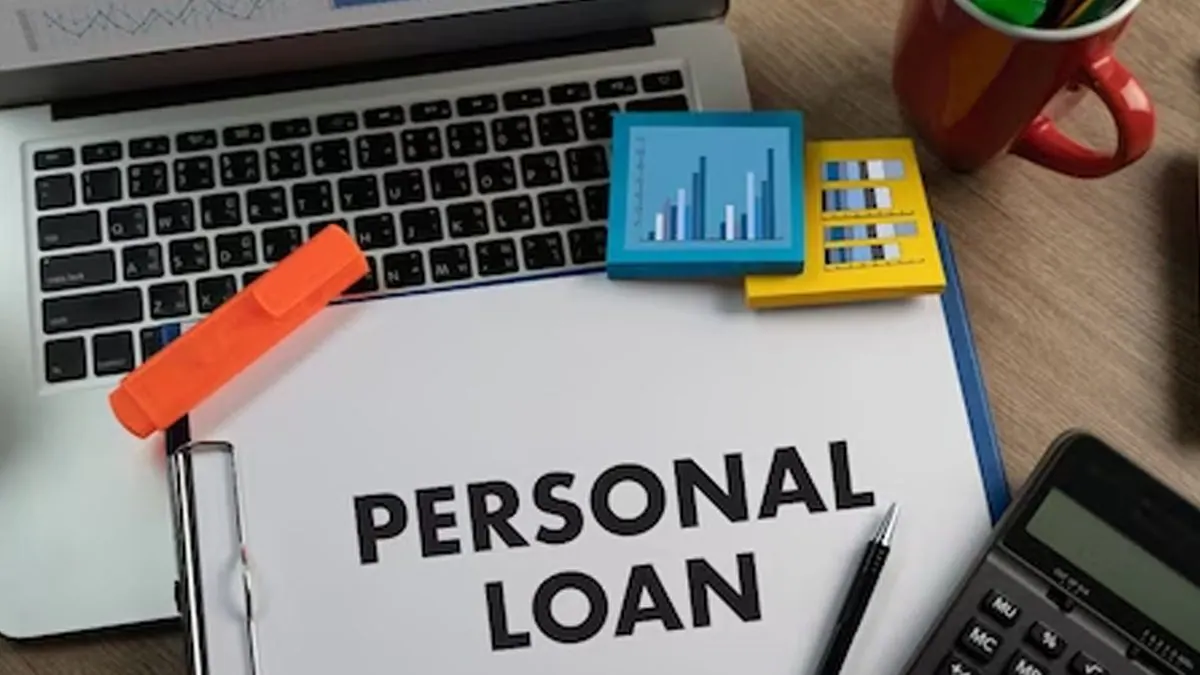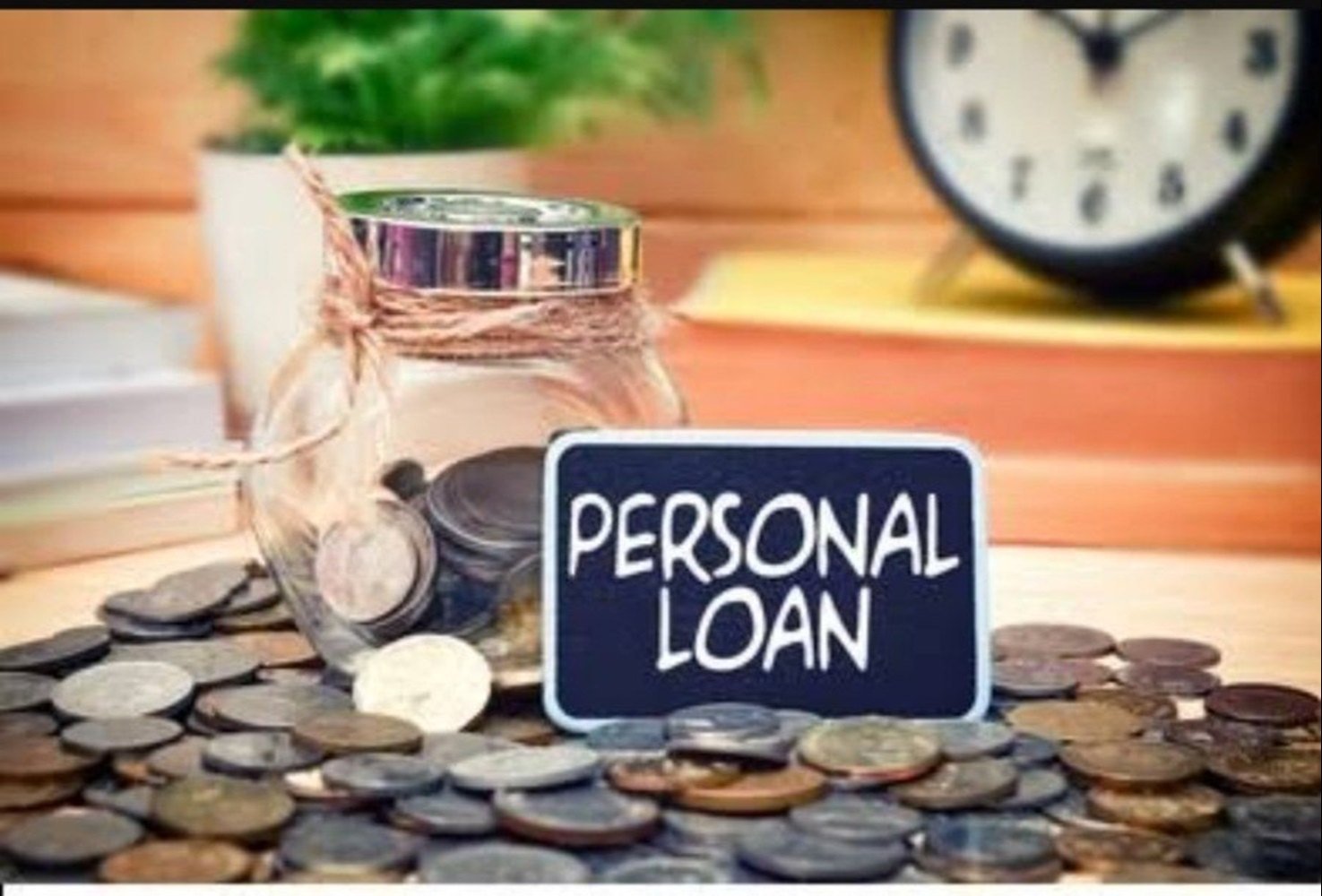When it comes to borrowing money, personal loans are a popular and versatile option. They can be used for a variety of purposes, from consolidating high-interest debt to funding a home renovation, paying for medical expenses, or even covering an unexpected emergency. But with so many options out there, choosing the best personal loan can be overwhelming. With the right knowledge and research, you can secure a loan that suits your financial needs and goals while Best Personal Loans minimizing costs over the long term.
In this comprehensive guide, we will walk you through the different types of personal loans, how to choose the best one for your situation, and what to consider when comparing loan options. We’ll also answer some frequently asked questions and provide you with key takeaways to ensure you make an informed borrowing decision.
Key Takeaways:
- Shop around for the best interest rates and loan terms to save money over the life of the loan.
- Pay attention to loan fees, including origination fees and prepayment penalties, as these can add to the total cost of borrowing.
- Consider your credit score, income, and loan amount to ensure the loan meets your financial needs.
- Always check the lender’s reputation and customer service before committing to a loan.
- Be mindful of your repayment plan, as missed payments can harm your credit score and incur additional fees.
What Are Best Personal Loans?

A personal loan is an unsecured loan that allows you to borrow money for a variety of personal reasons, such as debt consolidation, home repairs, or emergency expenses. Since most personal loans are unsecured, you do not need to provide collateral (like a car or house) to qualify. Personal loans generally offer fixed interest rates and fixed monthly payments, making them easier to budget for than credit cards or variable-rate loans.
The amount you can borrow, the interest rate you are charged, and the loan term (how long you have to repay the loan) are influenced by various factors, including your credit score, income, and the lender’s policies.
Interest Rates: One of the most significant elements to consider when various types of Personal Loansis the interest rate charged on them. Interest rates offered may differ for various lending institutions, and selecting a lending institution that offers competitive interest rates is critical.
Loan Amount: The loan amount is the money one borrows. Various financial institutions provide varying loan amounts and selecting the one which provides the lump sum loan amount you require is essential.
Loan Tenure: The loan tenure is the time period during which you must repay the loan. Various lending institutions offer varying loan tenures and selecting an institution that provides a loan duration that meets your demands is an important factor.
Processing Fee: Lending institutions may charge processing fees for processing your loan application. Processing fees may vary depending on the financial institution.
Prepayment Charges: Prepayment charges are fees imposed by lending institutions if you repay your loan before the end of the term. Prepayment rates vary as per loan provider. Therefore, it is advisable to select a lending institution with acceptable prepayment charges.
Repayment Schedule: The repayment schedule defines how you will be paying back your loan. Various lending institutions may offer different repayment plans, so selecting the one that provides a repayment schedule that meets your demands is crucial.
Credit Score: Your credit score is essential in evaluating your eligibility for a Personal Loan. Before applying for a Personal Loan, you should keep a check on your credit score.
Types of Personal Loans
There are several types of personal loans, each designed to meet different financial needs. Understanding the different types of personal loans can help you choose the one that’s best suited for your situation.
Unsecured Personal Loans
Unsecured personal loans are the most common type of personal loan. These loans do not require collateral, such as a car or home. Lenders rely primarily on your creditworthiness and financial history to determine whether to approve your application and the interest rate you’ll receive. Because these loans are riskier for lenders, they typically come with higher interest rates than secured loans.
Secured Personal Loans
A secured personal loan requires collateral, such as a savings account, car, or home. The value of the collateral helps to reduce the lender’s risk, and in turn, you may be offered a lower interest rate. However, if you fail to repay the loan, the lender can seize your collateral to recover the funds.
Debt Consolidation Loans
Debt consolidation loans are designed to help you combine multiple high-interest debts into a single loan with a lower interest rate. If you’re struggling with credit card debt or multiple loans, consolidating them into one personal loan can make it easier to manage your payments and potentially save money on interest charges.
Payday Loans
Payday loans are short-term loans that are typically due on your next payday. While they may seem like a quick fix for an emergency, payday loans often come with extremely high-interest rates and fees. They can quickly lead to a cycle of debt, so they should be avoided unless absolutely necessary.
Peer-to-Peer Loans (P2P)
Peer-to-peer loans are facilitated by online platforms that connect borrowers directly with individual lenders. These loans can sometimes offer lower interest rates than traditional banks because there are fewer intermediaries involved. However, terms and approval processes may vary depending on the platform.
How to Choose the Best Personal Loan

When comparing personal loans, it’s essential to consider various factors to ensure you’re getting the best deal for your financial situation. Here are the key elements you should evaluate:
Interest Rates
Interest rates are one of the most important factors to consider when choosing a personal loan. A lower interest rate means you’ll pay less over the life of the loan. Personal loan interest rates typically range from 5% to 36%, with the rate depending on your credit score, loan term, and other factors. Make sure to shop around and compare rates from different lenders to find the best option.
Loan Terms and Repayment Period
The loan term refers to how long you’ll have to repay the loan. Personal loan terms typically range from 1 to 7 years. Longer loan terms result in smaller monthly payments, but you’ll end up paying more in interest over the life of the loan. Shorter terms typically have higher monthly payments but can help you save money on interest. Choose a loan term that fits your budget while allowing you to pay off the loan as quickly as possible.
Fees and Charges
Personal loans can come with various fees, such as origination fees, prepayment penalties, and late fees. These fees can increase the total cost of borrowing, so it’s important to carefully review the loan agreement before committing. Some lenders charge no fees, while others may charge up to 6% of the loan amount as an origination fee.
Loan Amount
The amount you can borrow with a personal loan typically depends on your creditworthiness, income, and the lender’s policies. While some loans offer small amounts (e.g., $1,000 to $5,000), others allow you to borrow up to $50,000 or more. Make sure the loan amount meets your needs, but avoid borrowing more than you need, as this will increase the total cost of the loan.
Credit Score Requirements
Lenders use your credit score to assess your creditworthiness and determine the interest rate and loan terms. If you have a high credit score, you’re more likely to qualify for the best rates and terms. If your credit score is lower, you may still qualify for a loan, but expect to pay a higher interest rate. Some lenders specialize in loans for individuals with bad credit, though these loans often come with higher costs.
Lender Reputation and Customer Service
Before choosing a lender, research their reputation and customer service record. Look for reviews online and check with the Better Business Bureau (BBB) to ensure the lender is trustworthy and reliable. Lenders with a reputation for good customer service can help you navigate the loan process smoothly and provide support if you encounter any issues.
Approval Process and Funding Speed
Some lenders offer fast approval processes and quick funding, which can be particularly helpful in emergencies. If you need the loan funds quickly, look for a lender that offers same-day or next-day funding. Keep in mind that the approval process may take longer if the lender requires more documentation or if you have a low credit score.
Personal Loan Advantages
Personal Loans can be an excellent financial instrument for those who want instant finances for various reasons. Personal Loans provide the following advantages:
- They are an ideal option since they can be used for multiple purposes such as home improvement, medical emergencies, vacation, education and more. Unlike other types of loans, Personal Loans are not tied to a single purpose.
- Personal Loans are unsecured, meaning the borrower is not obliged to present any collateral to secure the loan. This makes Personal Loans accessible to even those people who may not have assets to use as security.
- Personal Loans often have a rapid approval procedure, with some lending institutions offering instant approval and fund disbursement. This makes Personal Loans an excellent choice for anyone who wants finances urgently.
- Personal Loans provide a variety of repayment alternatives in the form of flexible loan tenures. Borrowers can select a repayment plan that best meets their demands and budget.
- Repaying Personal Loans on time can boost a borrower’s credit score since it indicates prudent financial conduct. Borrowers with a higher credit score may qualify for better loan conditions and interest rates in the future.
Mistakes you need to avoid while selecting your loan

When selecting a Personal Loan, it is essential to take your time and carefully consider your options. Here are some common mistakes to avoid while choosing a Personal Loan:
- Not shopping around: One of the biggest mistakes borrowers make is not shopping around and comparing offers from different lending institutions. Failing to do so can result in paying higher interest rates and processing fees.
- Ignoring the fine print: Borrowers need to pay more attention to the fine print of the loan agreement including the interest rate, processing fees and repayment terms. Before signing the loan agreement, reading and understanding the terms and conditions is crucial as you miss out on some important points.
- Not considering your budget: It is essential to consider your budget and ensure that you can afford the monthly EMI payments before taking a Personal Loan. Failing to do so can result in missed payments, invite penalties and can damage your credit score.
- Borrowing more than you need: It can be tempting to borrow more than you need. However, doing so can result in higher interest costs and longer repayment tenure.
- Ignoring your credit score: Your credit score is crucial in determining your eligibility for a Personal Loan and the interest rate you’ll be offered. Make sure to check your credit score before applying for a Personal Loan and work to improve it if necessary.
- Not asking questions: Feel free to ask the lending institution any questions or concerns you may have. It is essential to have a clear understanding of the terms and conditions before signing the loan agreement.
Factors to consider for choosing the right personal loan
The loan amount should be neither too high nor too low
If the personal loan amount is higher than required, you will pay a higher amount of interest than required. However, if the loan amount is lower than required, you will fall short of funds for the intended purpose. Hence, you must ensure the loan amount is just right.
If taking a loan for a purpose like paying education fees, buying a vehicle, etc., as the amount is known, you can be sure of the loan amount. However, for purposes like a medical emergency, family function, starting a business, family vacation, etc., assess the funds requirement carefully. Discuss with your family members to arrive at the required personal loan amount.
Compare the interest rate and other terms from various lenders
Once you decide on the loan amount, compare the personal loan offers from various banks and NBFCs. One of the important parameters to compare is the interest rate. There are many online platforms that can help you compare personal loan offers from banks on various parameters like interest rates, tenure, income criteria and others.
Some banks may reduce the interest rate based on high credit score, existing relationship with the bank, if you are working with a reputed company with whom they have a tie-up, etc. The personal loan interest rates are usually in the range between 10% to 20% p.a. With such a wide range, it is important to compare and choose the one that suits your requirements.
Check the processing fee, foreclosure charges, and other charges
In the above section, we saw how comparing the personal loan interest rates among banks and NBFCs is essential. Similarly, it is important to compare the various fees and charges for personal loans among various banks and NBFCs.
In a personal loan, after the interest charges, the processing fee is one of the major costs involved. The processing fee can be a flat amount or a percentage of the loan amount. The processing fee is usually in the range between 1% to 4% of the loan amount. Some banks may charge a percentage of the loan amount, subject to a minimum and maximum processing fee.
The other fees and charges in a personal loan include foreclosure fees, late payment fees, EMI dishonour/bounce charges, loan cancellation charges, etc. The foreclosure fee is usually in the range between 1% to 4% of the outstanding principal amount. Some lenders may waive the foreclosure fee if the loan is closed after paying a specified number of EMIs. For example, a lender may waive the foreclosure fee after 12 EMIs have been paid.
As the fees can form a considerable amount, it is better to compare the processing fee, foreclosure fee, and other charges among various banks and NBFCs. While comparing, choose a lender that offers favourable terms that suit your needs.
Choose the repayment schedule that suits your repayment capacity
Usually, personal loans have a tenure of 12 to 60 months. Choose a repayment schedule that suits your repayment capacity. If you choose a longer tenure, you will pay more interest amount than needed. If you choose a shorter tenure, it can put pressure on your cash flows.
To understand your repayment capacity, prepare a cash flow statement. On the left side, list all the income sources like salary/business income, rent, interest income, dividend, etc. On the right side, list all the expenses. Take the total income and deduct the expenses. The balance left is your free cash flow, which can be used for the EMI repayment. Accordingly, you can choose the repayment schedule and EMI, such that it is easy on your pocket.
Ensure minimal documentation with a complete online process
These days, most banks and NBFCs have automated the process for personal loans and other loans. In some cases, the entire personal loan process, from application to disbursement, is automated. Check if the bank or NBFC you have shortlisted has an online option for applying for a personal loan. The digital process makes it fast, easy, and convenient. It can be done from the comfort of your home/office without the need to visit the bank branch.
The online verification of KYC documents ensures you don’t have to submit physical copies. Some banks have online processes that ensure you get the loan amount in a few minutes, hours, or on the same day. A faster process comes in handy in emergency situations such as a medical emergency.
Also Read : The Ultimate Guide To Personal Loan Rates: What You Need To Know
Conclusion
Choosing the best personal loan involves careful consideration of your financial situation, borrowing needs, and the terms offered by various lenders. It’s important to compare interest rates, loan terms, fees, and customer service to ensure you select a loan that fits your budget and helps you achieve your financial goals. By understanding the factors that influence personal loan rates and terms, you can make an informed decision and secure a loan that works for you.
FAQs
What is the minimum credit score required for a personal loan?
The minimum credit score required varies by lender, but most traditional lenders require a credit score of at least 600 to 650 for an unsecured personal loan. Some lenders may offer loans to borrowers with lower credit scores, but these loans may come with higher interest rates.
How long does it take to get approved for a personal loan?
Approval times vary depending on the lender and the complexity of your application. Some online lenders can approve loans within a few minutes, while traditional banks may take a few business days. After approval, funding can take anywhere from 1 to 7 days, depending on the lender.
Can I use a personal loan for anything?
Yes, personal loans are flexible and can be used for a wide range of purposes, including debt consolidation, medical expenses, home renovations, vacations, and more. However, it’s essential to be responsible with borrowing to avoid falling into a cycle of debt.
Will taking out a personal loan affect my credit score?
Applying for a personal loan can cause a temporary dip in your credit score due to the hard inquiry, but timely payments on your loan can help improve your credit score over time. Conversely, missed payments can harm your score.
Can I pay off my personal loan early?
Yes, most personal loans allow early repayment without penalty. However, it’s essential to check the terms of the loan agreement to ensure there are no prepayment penalties. Paying off your loan early can help you save on interest costs.
What happens if I miss a payment on my personal loan?
Missing a payment can lead to late fees, increased interest rates, and a negative impact on your credit score. If you miss multiple payments, the lender may send your account to collections. To avoid this, make sure to set up automatic payments or reminders to ensure you pay on time.
Can I get a personal loan with bad credit?
Yes, it is possible to get a personal loan with bad credit, but the interest rates will likely be higher. Some lenders specialize in offering loans to individuals with poor credit, but you should shop around to ensure you get the best terms possible.





